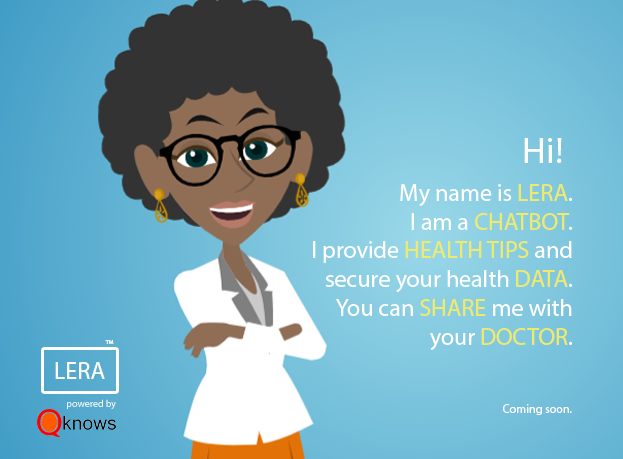Nigeria’s primary healthcare system has long been plagued by numerous challenges, ranging from inadequate infrastructure to a shortage of healthcare professionals. These issues have resulted in significant suffering for the population, particularly in rural areas where access to quality healthcare remains a major concern. However, there is hope on the horizon as QuickHelp Nigeria, the country’s number one Chatbot Directory Service, introduces its latest innovation called Lera.
Introducing: QuickHelp’s Lera
Lera, derived from the Yoruba word “Ilera,” meaning health, is an artificial intelligence-enabled chatbot designed to revolutionize the primary healthcare experience in Nigeria. Serving as a personal virtual agent on mobile devices and a public agent on kiosks and large screens, Lera aims to bridge the gap between patients and healthcare facilities by providing quick and smart information, health and hygiene tips, and instant emergency notifications to authorized healthcare professionals.
This groundbreaking mobile app offers a range of benefits that can potentially transform the way Nigerians access and receive healthcare services. One of the most significant advantages of Lera is its ability to securely store users’ health data accumulated through sustained interactions. This data can then be easily shared with medical professionals, simplifying the diagnosis process and facilitating more efficient healthcare delivery.
In addition to facilitating the sharing of personal health data, Lera acts as a life-saver for individuals visiting public healthcare facilities. By providing navigational and descriptive information, Lera saves valuable time for patients, especially in cases of emergencies. Instead of being left in the dark about what to do, users can rely on Lera to guide them through the necessary steps, potentially saving lives in critical situations.
Furthermore, while Lera does not replace the expertise of doctors and other healthcare professionals, it offers a conversational mode that provides users with essential health and hygiene tips. This feature can contribute to promoting better health practices among the population, thereby preventing certain illnesses and reducing the burden on healthcare facilities.
Nigeria’s primary healthcare system has been grappling with a severe shortage of healthcare professionals, particularly medical doctors. According to recent statistics, the country has experienced a significant outflux of doctors, with many seeking better opportunities abroad. The lack of adequate incentives, poor working conditions, and limited career prospects within the Nigerian healthcare system have been cited as key reasons for this brain drain.
Amidst this challenging situation, Lera offers a glimmer of hope. By leveraging artificial intelligence and mobile technology, Lera can help alleviate the suffering associated with the shortage of doctors in Nigeria. While it cannot replace the presence of medical professionals, Lera’s ability to provide quick and accurate information, emergency notifications, and health tips can serve as a valuable resource for individuals in need of primary healthcare services.
It is worth noting that Lera seamlessly integrates with QuickHelp’s Chatbot Directory Service, retaining all the benefits of the existing platform. Users can easily switch between Lera and QuickHelp, ensuring they have access to a comprehensive range of healthcare resources, directories, and information at their fingertips.
With Lera’s introduction, there is renewed hope for the Nigerian primary healthcare system. By leveraging the power of artificial intelligence and mobile technology, this innovative chatbot has the potential to address some of the long-standing challenges faced by healthcare facilities across the country. While there is still much work to be done to improve the overall state of primary healthcare delivery in Nigeria, Lera represents a significant step forward in leveraging technology to ameliorate the sufferings associated with the system.
Sources:
Nigeria Health Watch. (n.d.). The State of States on Primary Healthcare Delivery in Nigeria. Retrieved from [https://articles.nigeriahealthwatch.com/the-state-of-states-on-primary-healthcare-delivery-in-nigeria/](https


Leave a Reply